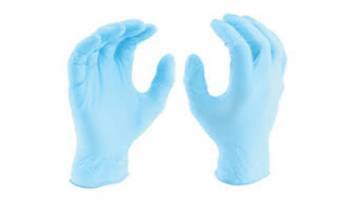Suspend duty on masks, gloves and sanitisers

Thupeyo Muleya and Yoliswa Dube-Moyo
In light of Covid-19 which has affected thousands of people globally, many employers have directed their workforce to stay home and work remotely, but there are some jobs that simply cannot be done from home.
People like barbers, supermarket stockers and cashiers all need to remain on the job for now — unless directed otherwise.
Consequently, the uptake of masks, gloves and sanitisers has been alarmingly high with suppliers failing to meet demand. In the few places where they are, the consumables are being sold at exorbitant prices due to their scarcity on the market.
Many locals, concerned about the shortage of the items and the high prices where and when they are available, are urging the Government to suspend duty on imported gloves and sanitisers.
According to the Zimbabwe Revenue Authority (Zimra) tariff handbook, import duty on synthetic fibers (common gloves used in the country) are charged a 40 percent duty and an additional US$3 per kilogramme plus 15 percent value added tax.
In the case of sanitisers, they are levied a 40 percent duty and 15 percent value added tax, while face masks do not attract import duty.
The Shipping and Freight Forwarders Agents Association of Zimbabwe (SFAAZ) says the products are critical tools to manage and contain the spread of the coronavirus.
The organisation says the suspension of duty on these items will help boost local stocks through import from various countries in the region.

Of late, there has been a frenzied buying of food items and the prevention tool kits by Zimbabweans.
SFAAZ chief executive officer, Mr Joseph Musariri said it was critical for the Government to make sure that every necessary item is available to prevent the rapid spread of the condition.
“In times like these, it might be prudent for the Government to scrap import-related duties and levies on face masks, soaps and sanitisers, etc. These tools are very critical in the fight against the pandemic,” he said
Mr Musariri said SFAAZ was also standing with the International Federation of Freight Forwarders Associations (FIATA) and its National Association Members who have since pledged to continue to support initiatives to contain the spread of Covid-19.
The organisation is one of the major players who are at the centre of the international trade logistics and supply chain management process.
In a recent statement, FIATA said: “The disruption to the aviation sector is now one of the greatest threats to the timely delivery of life saving-medical supplies and key componentry to sectors identified as vital to economic security.
“On this matter FIATA noted and supports the International Air Transport Association (IATA) Media release where governments do not appear to clearly understand that short- term decisions will exacerbate the immediate and short-term ability of economies to meet the challenge of Covid-19 containment and then the economic rebuild.
“FIATA now urges all governments, through a common need, to fully implement the World Trade Organisation Agreement on Trade Facilitation. FIATA and its National Association Members and their members are the key to meeting community and economy expectations in these challenging times and the rebuild for the future”.
Various governments across the globe have declared face masks and hand sanitisers as essential commodities for the next 100 days as they step up efforts to boost supply and prevent hoarding of these items in the fight to check spread of Covid-19.

In India, the Centre for Disease Control has invoked a Disaster Management Act to ensure price regulation and availability of surgical and protective masks, hand sanitisers and gloves.
Protective masks and hand sanitisers are being bought under the Essential Commodities Act, 1955, empowering States to regulate production, distribution and prices of these items and also crackdown on hoarding and black- marketing.
The decision would empower the government and states to regulate production, quality and distribution of masks and hand sanitisers for smooth sale and availability of these items. It also empowers companies to carry out operations against speculators and those involved in over pricing and black marketing.
People are being encouraged to be vigilant at the home level as household members, intimate partners, and caregivers in a non-healthcare setting may have close contact with a person with symptomatic, laboratory-confirmed Covid-19 or a person under investigation.
Close contacts should monitor their health; they should call their healthcare provider right away if they develop symptoms suggestive of Covid-19 including fever, cough or shortness of breath.
The shortage of face masks and hand sanitisers has become a global challenge. In a number of countries, exports of the items have been banned. In South Africa, the items sell out as quickly as stores replenish stock.
As for Zimbabwe, removal of duty on gloves and hand sanitisers would make the products more affordable for the majority, thus enhance access to them. This will be helpful in the national efforts to fight Covid-19.











Comments